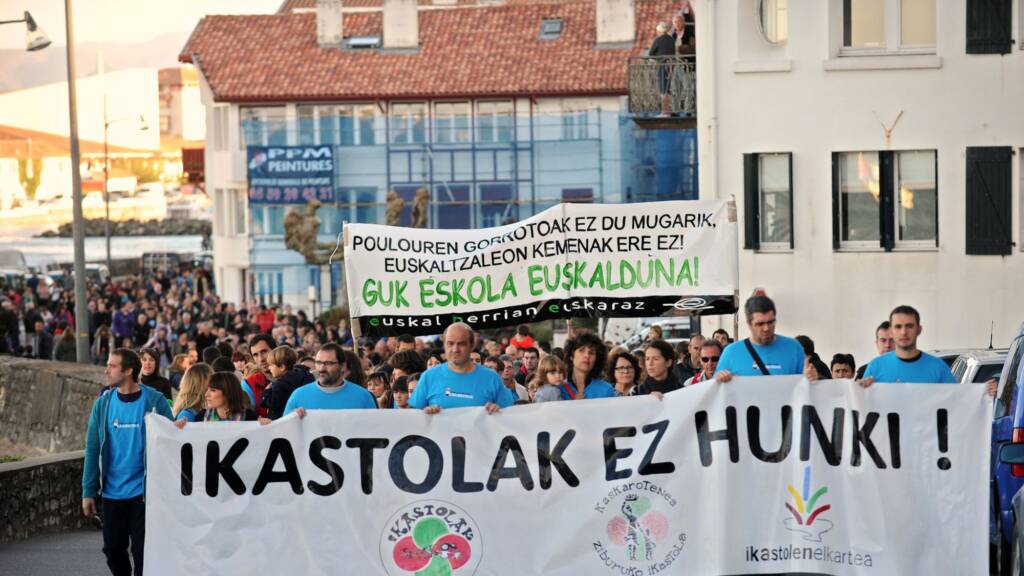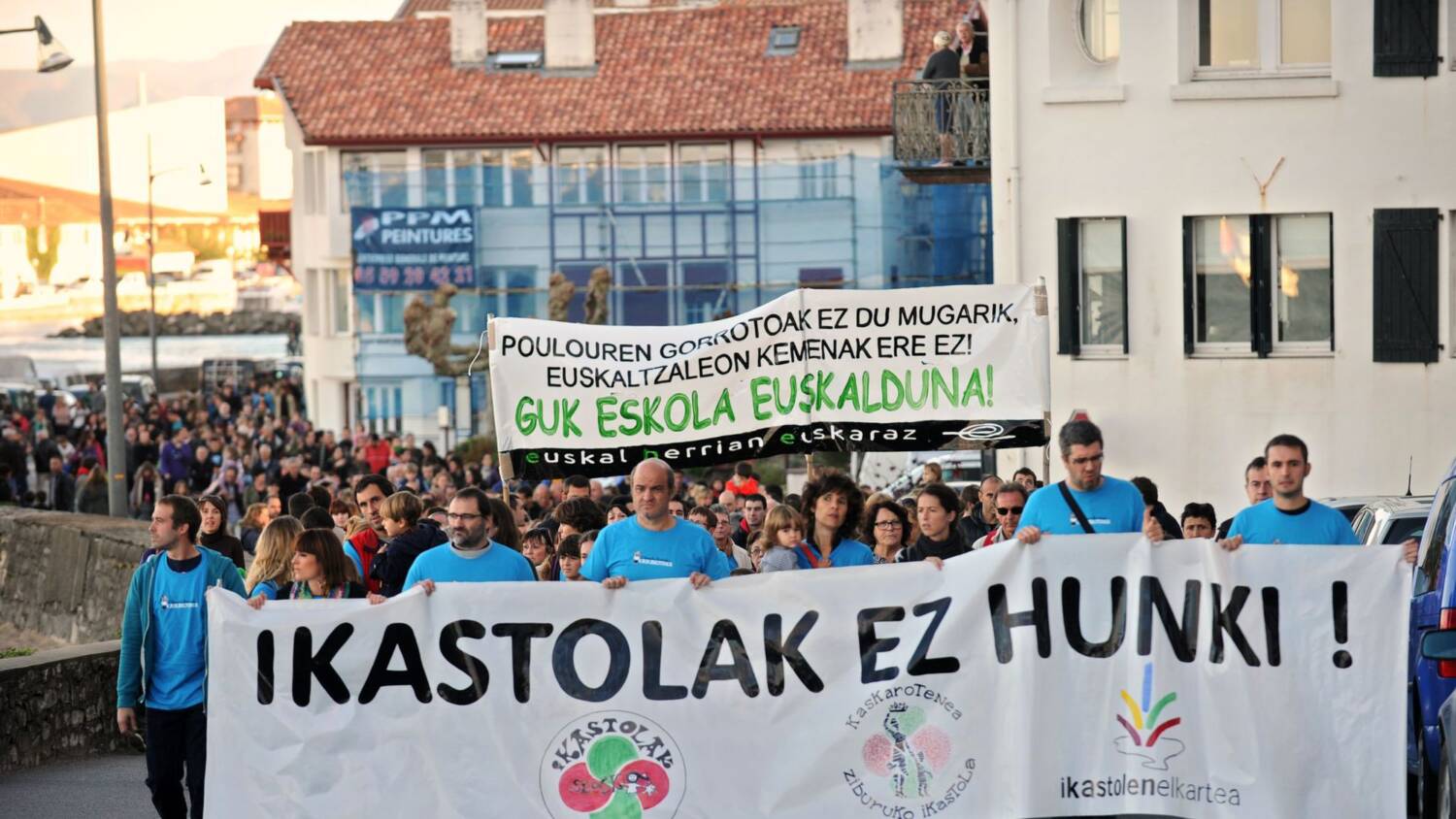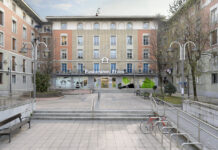“The Incredible Revival of Basque in France”. That was the title of the op-ed piece by chief editor Michel Feltin-Palas in the French daily L’Express last February. This journalist, who specializes in the “French regions”, maintains an admirable position in defense of minority languages in France.
This article, which we’re sharing because of how interesting it is, gives us a thought-provoking analysis of the positive evolution Basque is undergoing north of the Pyrenees, and the reasons for that improvement. It’s still not enough, but it’s definitely getting better.
We cannot help but be thrilled, and admittedly just a little surprised, that a French daily, published in Paris, is in favor of any language in France that isn’t French.
The analysis, based on the study and data in the book “La nouvelle politique linguistique au Pays basque” (The New Language Policy in the Basque Country), published by Eguzki Urteaga (Editions L’Harmattan), shows how the language is improving within its own natural boundaries in the Northern Basque Country. We’re sure this recovery has something to do with the slow recovery of self-government the Northern Basque Country has been experiencing in the last forty years.
Not long before his analysis of Basque, Feltin-Palas analyzed the situation of the Breton language, which is not experiencing the same revival, but rather is going through a more delicate period, unlike its sister language Welsh.
The project to build a nation-state in France that was born in the French Revolution included a pillar that the French language must be the only language of the French people, at the expense of the “regional dialects”, thereby increasing the pressure that the French language, the langue du roi, was already applying on the kingdom’s other languages. We’ve already covered a few comments on the use of languages that weren’t French in the newly-founded French Republic.
Grégorie and Barère. In their reports to the new French government, they considered Basque to be “a language of people given to fanaticism and an obstacle to the propagation of light”.
In 1794, Barère, a Jacobin, warned the Convention Nationale: “Careful! The language of a free people must be the same for all. We’ve seen how the Breton dialect (sic), the dialect called Basque (sic), and the German and Italian languages perpetuate the control of fanaticism and superstition, support the rule of the priests and aristocrats, and favor the enemies of France…It is treason against the fatherland to leave citizens ignorant of the national language”.
According to Grégoire, about 8 million “Frenchmen”—a quarter of them—were committing the crime of not knowing French and of expressing themselves in thirty linguistic varieties in a population of 29 million—the largest in Europe. “Nowhere in Europe or anywhere else in the world that I know of is the national language not used universally in that nation. France has in its heart perhaps 8 million people who can barely stutter out a few poorly-pronounced words in our tongue: the others know of it nothing at all.” So, he proposed the utter “annihilation of local languages”. To impose French, the best weapon was education, so Barère proposed naming a French language instructor in every town, to teach the laws, decrees, and mandates of the Convention.
A few years later, the Spanish nation-state, created in the Cádiz Constitution of 1812, would follow their lead.
Fortunately, for culture and diversity’s sake, the minority languages were able to survive, despite the pressure and persecution they have been subjected to. And at least some of them are even undergoing a revival.
We’ll leave you with the two articles in L’Express, the one on Basque and the one on Breton.
L’Express – 11/2/2020 – France
L’incroyable renouveau de la langue basque en France
Ces diables de Basques ne feront donc jamais rien comme tout le monde ? Aussi incroyable que cela paraisse, l’euskara gagne en effet des locuteurs en France, et ce alors que toutes les autres langues minoritaires de métropole semblent en déclin. Il y a là un mystère sur lequel s’est penché le sociologue Eguzki Urteaga (1), dont il vaut mieux ne pas même essayer de prononcer le nom (ou alors ne mentez pas : vous êtes bascophone).
(Follow) (Automatic translation)
L’Express – 12/11/2019 – France
Les langues régionales sont-elles victimes de la “modernité” ?
Ces diables de Basques ne feront donc jamais rien comme tout le monde ? Aussi incroyable que cela paraisse, l’euskara gagne en effet des locuteurs en France, et ce alors que toutes les autres langues minoritaires de métropole semblent en déclin. Il y a là un mystère sur lequel s’est penché le sociologue Eguzki Urteaga (1), dont il vaut mieux ne pas même essayer de prononcer le nom (ou alors ne mentez pas : vous êtes bascophone).
(Follow) (Automatic translation)


Last Updated on Dec 20, 2020 by About Basque Country





